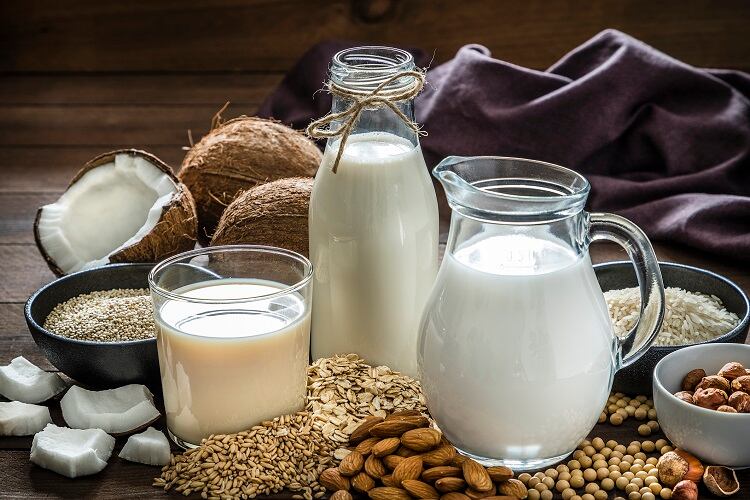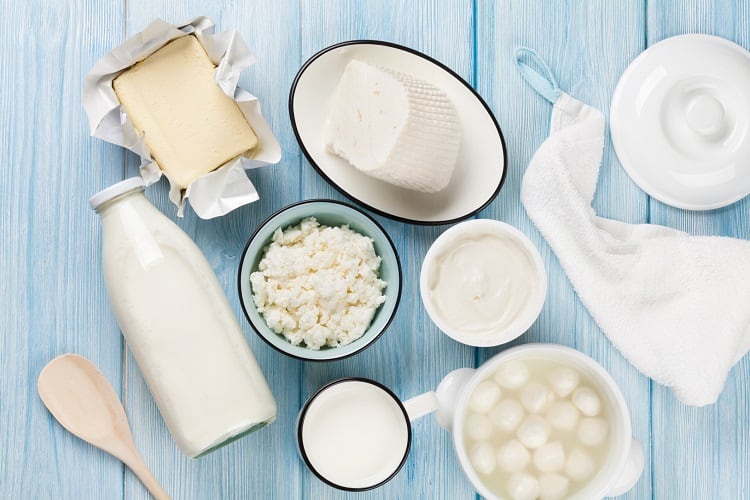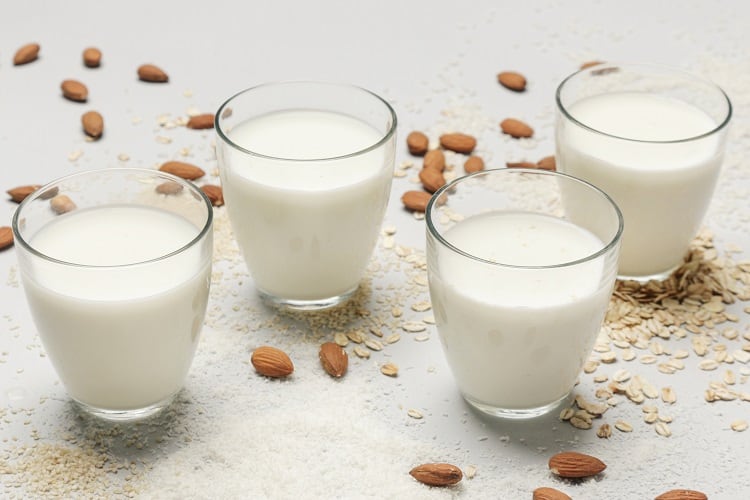A number of countries in Europe do not distinguish between cow’s milk and soya milk when it comes to value-added tax (VAT). These include Belgium, Denmark, Finland, France, Ireland, the Netherlands, and Portugal. The UK is another that charges the same VAT rate for both plant-based and dairy milk.
However, this is not the case for all countries across the bloc. According to ProVeg International’s 2019 Plant Milk Report, six countries have ‘significantly higher’ VAT on plant-based milk compared to cow’s milk: Austria, Germany, Greece, Italy, Slovakia, and Spain.
In Germany, VAT on cow’s milk was 7%, compared to soya milk which incurred a VAT of 19%, in Spain, the rate is 150% higher, and in Italy, soya milk had a VAT rate 450% higher than cow’s milk.
ProVeg International finds such fiscal variance ‘discriminatory’, arguing that ‘people want a fair playing field for plant-based products’.
This appears to be true of Spain, where a new survey – commissioned by plant-based brand YOSOY and ProVeg Spain, and carried out by Netquest – suggests consumers want alt milk to be taxed at the same rate as animal-based milk.
Spain in focus
Spain is thought to lead the per capita sales volume of plant-based milks in Europe. According to Nielsen data, Spain consumes 246m litres of plant-based milk per year, representing a 14% increase since 2018. Milk alternatives made from oats are the most popular, followed by soy, and almond.
As it stands, animal-based milk is charged 4% VAT, whereas plant-based milk alternatives are charged 10% - representing an increase of 150%.
According to YOSOY and ProVeg Spain’s survey findings, 90.5% of those surveyed are against a higher VAT for plant-based milk compared to conventional milk. A total of 86.2% said they would support an initiative to bring the VAT on plant-based milks down to 4% - to equal that of animal-based milk.
Results also indicated that a significant proportion of consumers are in the dark when it comes to VAT differentiation between the categories. A total of 86.1% of respondent said they were unaware of the tax variances.
For ProVeg International, which aims to reduce global animal consumption by 50% by 2040, the discrepancy represents discrimination against the plant-based sector.
The pro-plants argument
ProVeg’s argument suggests cow’s milk and plant-based alt milk should be taxed at least the same amount, due to the environmental advantages of opting for the latter.
According to 2018 research by Poore and Nemecek published in Science, which compared the environmental impact of different milks – both animal derived and plant-based, cow’s milk has the most significant environmental impact in terms of greenhouse gas emissions, land, and water use.
For every litre of cow’s milk produced, nine square metres of land and 628L of water is required, they noted in the study. Further, one litre of cow’s milk results in emissions of 3.2kg CO₂ equivalent.
Within the plant-based realm, alt milk made from almonds is associated with the lowest greenhouse gas emissions at 0.7kg CO₂ equivalent per litre, followed by oat (0.9kg CO₂ equivalent) and soy (1kg CO₂ equivalent).
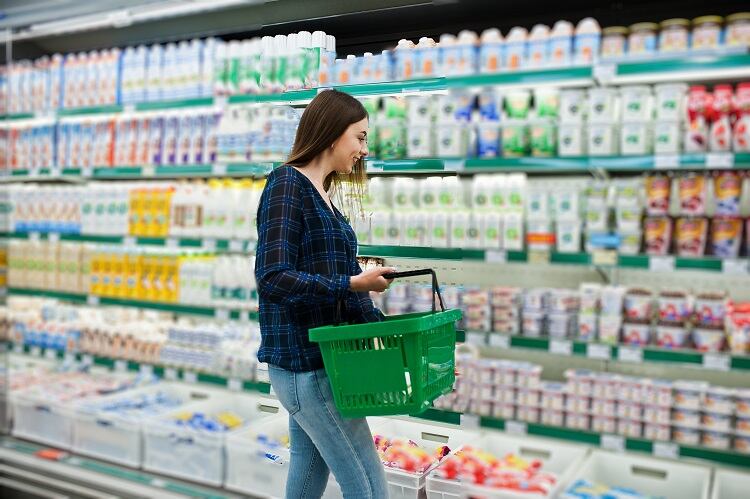
“It is unfair that plant-based milks in Spain, whose production has a much lower environmental footprint than animal-based milks, are discriminated against with a 150% higher VAT rate,” according to Sebastian Joy, founder and president of ProVeg International.
“It is necessary that governments take measures to promote a fair food transformation and guarantee access to plant-based alternatives. Reducing the VAT on plant-based milks is one of the most important steps to take now.”
‘Plant-based beverages are artificial’
On the other side of the coin is the European Dairy Association (EDA) – representing the milk processing industry across the bloc – which argues the VAT rate of plant-based milk alternatives should indeed be higher than cow's milk.
“The reason why milk has a reduced VAT rate (4% in Spain) is because it belongs to the group of basic foodstuffs, together with other products like fruit, vegetables, cheese, bread, or eggs,” an EDA spokesperson told FoodNavigator.
“Cow’s milk is a nutritious and affordable product that serves as a natural source of high-quality protein, essential vitamins and minerals. On the contrary, plant-based beverages are fortified drinks with artificially added additives that do not guarantee the same health benefits that milk brings naturally.”
Although vegetables are also part of the group of basic foodstuffs with a reduced VAT rate, a serving of highly processed plant-based beverage is not nutritionally equivalent to that same serving of the raw plant, the spokesperson continued.
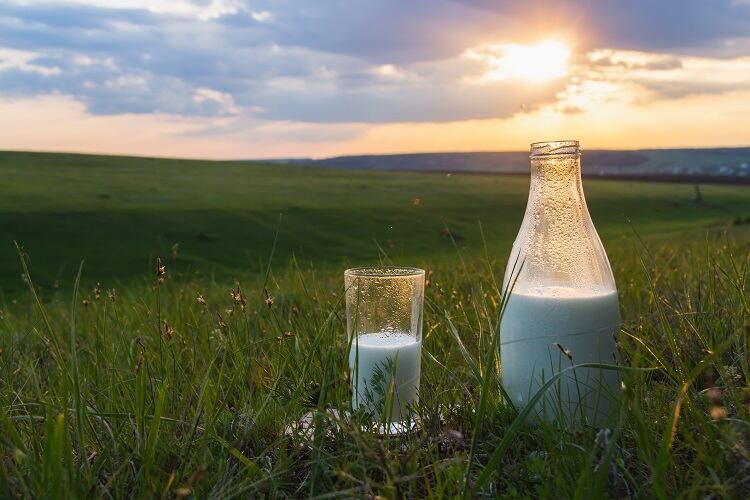
While the EDA accepts environmental impacts of plant-based beverages may generally look better per kg of product, it believes milk could perform better when the impacts are expressed per nutritional value.
Ultimately, the association says there is ‘no discrimination’ when applying a lower VAT rate to products like milk, which it describes as a ‘naturally nutrient-rich food recommended for all age groups’. “Products like plant-based beverages simply do not meet such criteria.”
Cellular agriculture is just one of the opportunities we'll be probing at our upcoming broadcast event, Climate Smart Food. We'll be discussing a variety of issues, from sustainable sourcing, to sustainable consumption and food and ag tech that will support systems transformation.
Acacia Smith, Policy Manager at Good Food Institute, will also be joining our panel dissecting the role that plant-based innovation has in the transition to more sustainable consumption.
With the food system contributing around one-quarter of greenhouse gas emissions today, it is clear that business-as-usual is not an option. So what needs to change if we are to transition towards truly sustainable nutrition? Join us to find out.
To register for free, click HERE, or to view details of our full programme, click HERE.
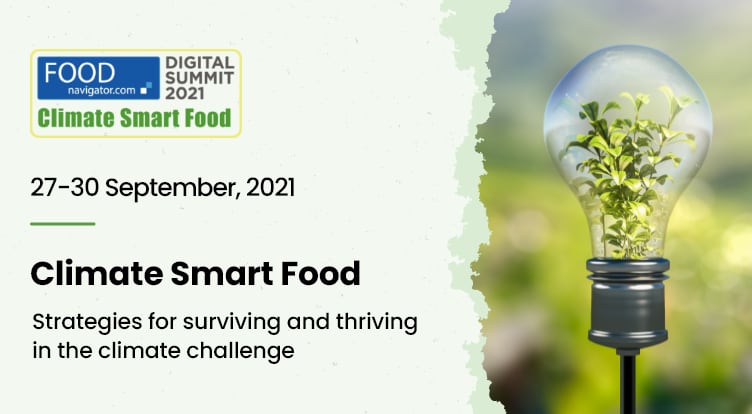
Source: Science
'Reducing food's environmental impacts through producers and consumers'
Published 2018
DOI: http://dx.doi.org/10.1126/science.aaw9908
Authors: Poore, J. and Nemecek, T.


